Let’s face it, seeing a pile of clothes inside the laundry baskets drains most people’s motivation. First, it’s time-consuming, and there are other chores competing for your attention. That is how most of us find ourselves re-wearing dirty clothes. But is wearing dirty clothes worth it? This article will teach you what happens if you wear dirty clothes, what to consider before wearing, removing odor without washing, and more.
Wearing dirty clothes is sometimes acceptable. Some clothes can be worn several times before they appear heavily soiled and need washing. Such include dark-colored clothes, jeans, and jumpers. However, continuously wearing dirty clothes may cause skin infections, faster wearing out, and stain setting, among others.
What Happens if You Wear Dirty Clothes?
Wearing dirty clothes may appear convenient for the time being. But it has downsides that you might want to avoid. Take a look at a few below.
Stain May Set
If you spilled coffee on your favorite blouse and you want to wear it one more time, you might throw it away sooner. Most stains are easier to wash when fresh. And that is why it is recommended to pretreat stained clothes as soon as possible and wash them. Delaying cleaning or wearing when dirty increases the chances of the stain becoming permanent.
Itches and Rashes
According to experts, our bodies secrete about 500 million skin cells and one liter of sweat per day. And can you guess where all that ends up? Most of it is soaked up by your clothes. If that is not scary enough, it becomes messier when bacteria join the fray. Bacterias feed on this secretion mess and produce secretions of their own into your skin. And that is how you spend your day feeling itchy all over your body.
They Produce Odor
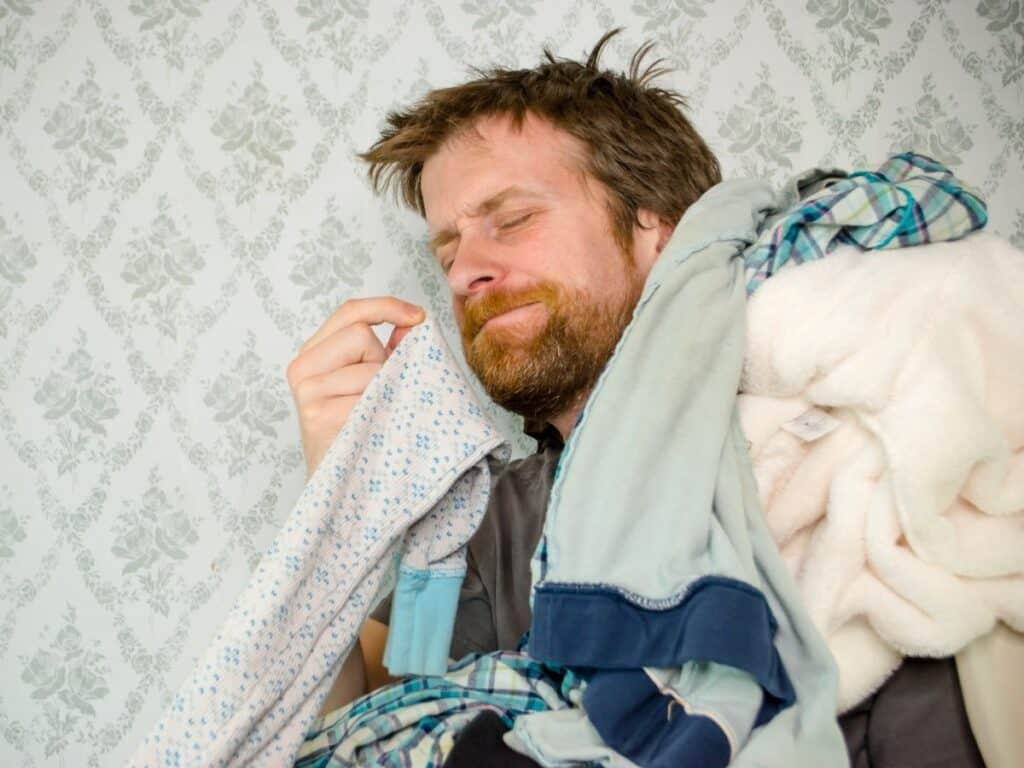
Most clothes, when worn more than once, smell awful. This is especially worse for clothes that are in close contact with the skin all day. These include clothes in contact with body parts that sweat more than others; armpits, private parts, etc.
For example, underwear, leggings, shirts, and blouses always produce more odor than outer clothes. Clothes such as jeans and jackets can be worn several times before they need washing.
It Causes Oil Build-up
With all the oil secretions ending up in your clothes, your clothes will start to feel slimy after wearing them several times without washing them. This clogs up your skin, making you feel sweaty and uncomfortable. Additionally, such clothes rub off their dirt into your skin, making you feel untidy even when you’ve showered.
It Makes You Look Untidy
Whether you like it or not, people judge us by our looks. Wearing dirty clothes makes you look poorly groomed and sends wrong signals about the rest of your life. Whether in a social gathering or at work, people will notice and start avoiding you.
In contrast, wearing clean clothes injects self-confidence and motivation, which will show in your improved productivity, and quality of life.
What to Consider Before Wearing Dirty Clothes
Wearing clean clothes is the most desirable thing to do. However, for some reason, this might not be possible all the time. So if you must wear dirty clothes, you might need to make some considerations. Below are a few points to ponder.
Avoid Re-wearing Underwear
Wearing dirty underwear is gross and should be avoided. Underwear bears the brunt of absorbing some of our bodies’ fluid secretions by the end of the day. That means if you wear them the following day, they will not smell great. So, re-wearing underwear is one of those rules that shouldn’t be broken.
Wear Dirty Jeans More Times

Jeans are the opposite end of the re-wearability compared to underwear. With jeans, you should wear them a minimum of 3 times, and up to 10 times before washing. As a matter of fact, the more you wear your jeans up to the maximum number of times, the softer they become.
This is because, unlike other fabrics, jeans are rougher. So after absorbing skin oils, they become softer and more comfortable to wear. In fact, frequently washing and drying are discouraged to avoid wearing out the fabric.
Wear Suits Several Times Before Washing
Suits can be worn several times before they need cleaning. But this also depends on other factors such as the suit fabric type and your lifestyle. For example, a woolen suit will require a visit to the dry cleaner only 3-4 times, compared to synthetic suits needing 4-5 times.
On the other hand, if you wear your suit in places with lots of aromas: grill joints, aromatherapy centers, and bakeries, you might take more trips to the dry cleaners. This is in contrast to someone that works in a stock broking firm or a bank.
I also wrote an article on how many times you can wear all different types of clothes that may interest you.
Location and Season Are Important
If you live in hot regions chances of re-wearing dirty clothes diminishes. For example, living in Louisiana or Hawaii in summer, you will wear most of the clothes only once. In those regions, you start dripping with sweat the moment you step out of your home. Probably, if you wish to wear your clothes more times before rewashing, you can relocate to North Dakota and Alaska.
Do a Sniff Test
The sniff test is the ultimate deciding factor in knowing if you can wear an item of dirty clothing. In case you do not know how to do a sniff test, it is as simple as placing the clothing near your nose and smelling it. And if it smells nice, it will smell nice to others as well. So, it has passed the sniff test. But sometimes, the sniff test might not be necessary for obviously dirty-looking garments. If it looks dirty, it is dirty whether it smells or not.
Have Intermediate Clothes
As you wear and re-wear clothes, some become too dirty to wear any before they are laundered. Those go straight to the hamper as they await laundry. Beside these clothes are the freshly washed clothes that go directly to the closet.
Now, in between these two classes are the “mid-dirty” clothes which are neither too clean for the closet nor too dirty for the hamper. This is the pile classified as intermediate. In most homes, they will be found draped on an unused chair or corner of a bed. Classifying your clothes this way makes it easy to know what is re-wearable before washing and what is not.
Re-Wearing Rules for Other Types of Clothes
Even after considering the tips we shared above, it is not easy to determine the number of times to wear various clothes before washing. The American Cleaning Institute has some guidelines on the frequency of use for various garments.
Bed Sheets
Ideally, they should be washed once every two weeks. This frequency can be adjusted to twice or more per two weeks if you sweat a lot.
Pajamas
Wash pajamas after wearing them four times. But again, for heavy sweaters, you need to wash more frequently. This also applies to showering habits, with those who shower more frequently washing it fewer times.
Bath Towels
For bath towels, you need to air dry them thoroughly in between uses. This will prevent them from producing odors and give you more uses before washing. By following this rule, you can wash them after 3-5 washes. If you have skin problems and are on medication, washing them more frequently will reduce the germ build-up.
Socks
The rule for underwear applies to socks too. Due to getting crumpled up inside shoes for a long time, socks will be moist and emit odor, even when used only once. So, only wear them no more than once.
Outer Clothes
For dresses or shirts, wearing them several times will be ok since they are not in direct contact with the skin. Alternatively, you can do a sniff test or physically inspect them for the presence of visible dirt.
White Clothes
White clothes become dirtier faster, and stains become tougher on whites than on colored clothes. Therefore, wear them only once before rewashing.
Leggings, And Bath Suits
Washing after every wear improves the shape of the leggings by preventing enlarged knees appearance. When it comes to bath suits, you want to launder them after every single use. This is due to the accumulation of body secretions as they are in direct contact with the skin.
Bras
Compared to underwear, bras do not accumulate a lot of secretions, and you can get up to three wearing times before washing.
I also wrote a guide on how to remove tobacco stains from clothes that may interest you.
How to Make Dirty Clothes Re-Wearable by Removing Odor
As we found out, the odor is one of the main reasons dirty clothes are unwearable. Reducing the odor, it will make them better for wear. Follow the following tips and remove the odor without washing your clothes.
Use Dryer Sheets
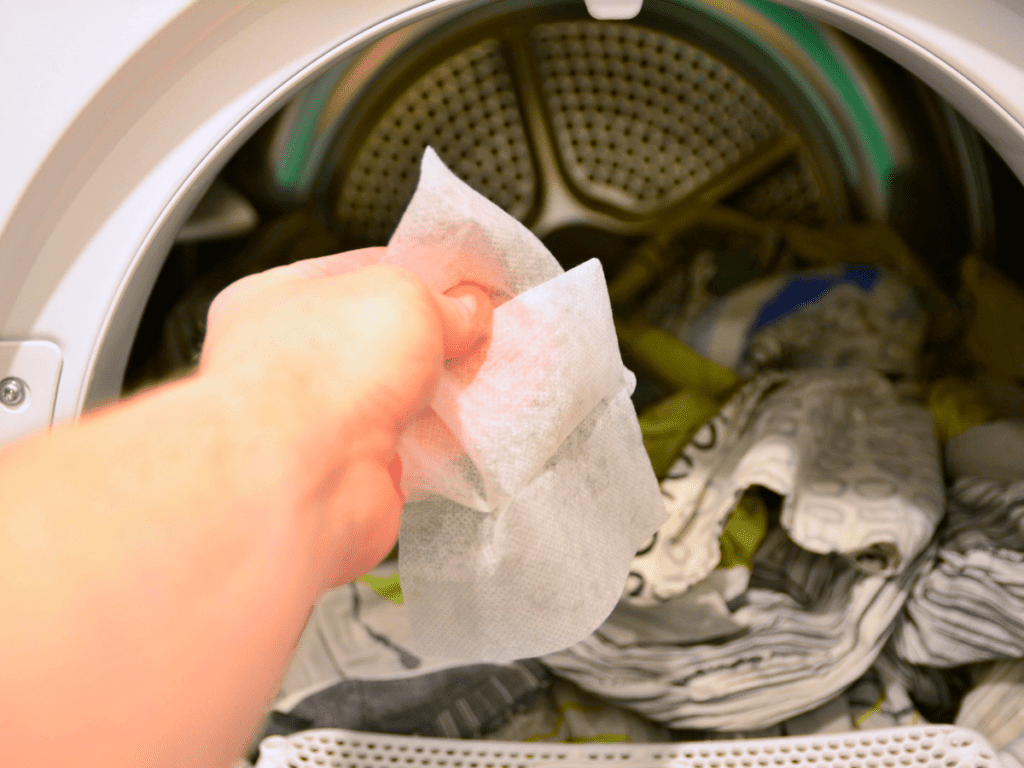
Dryer sheets are wonderful in removing odor in unwashed clothes. All you have to do is to toss the clothes you wish to deodorize into a tumble dryer. Next, throw a few of the sheets into the tumble dryer, and that is it. Your dirty clothes will come out with your favorite fresh scent; lavender, honeysuckle, basil, etc.
Spray Air Freshener
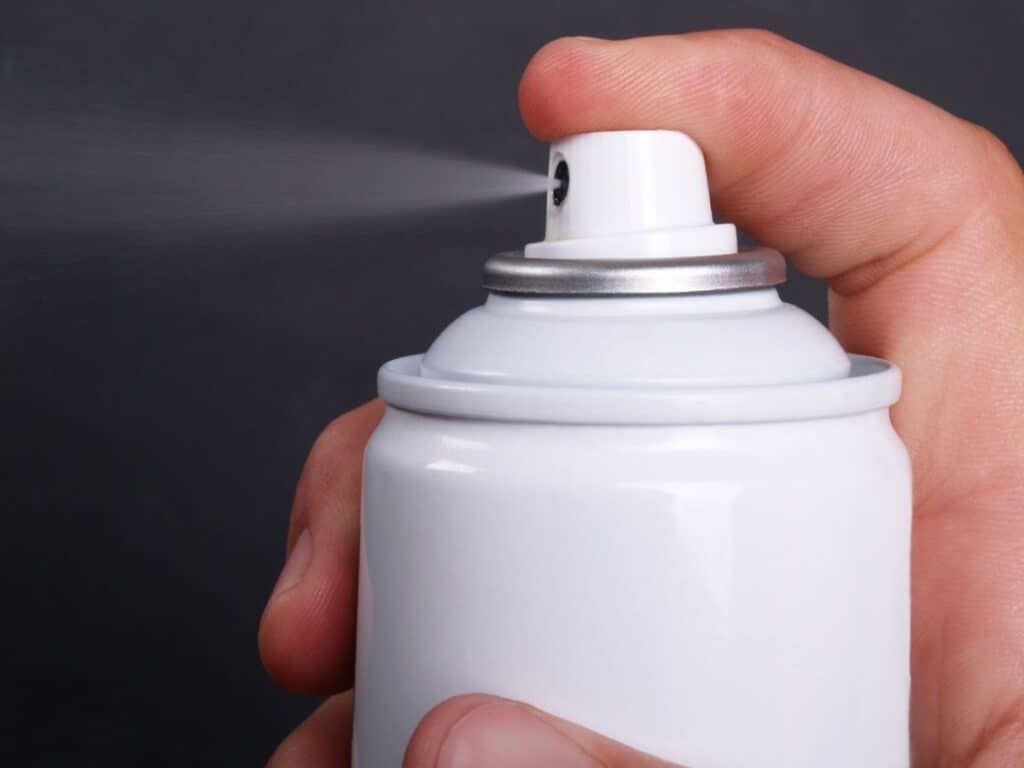
Give your dirty clothes a dose of your favorite air freshener to mask the foul smell. This is especially great if you are in a hurry. All you need to do is spray thinly on the clothing surface and allow a 15 minutes wait for the excess smell to dissipate.
White Vinegar
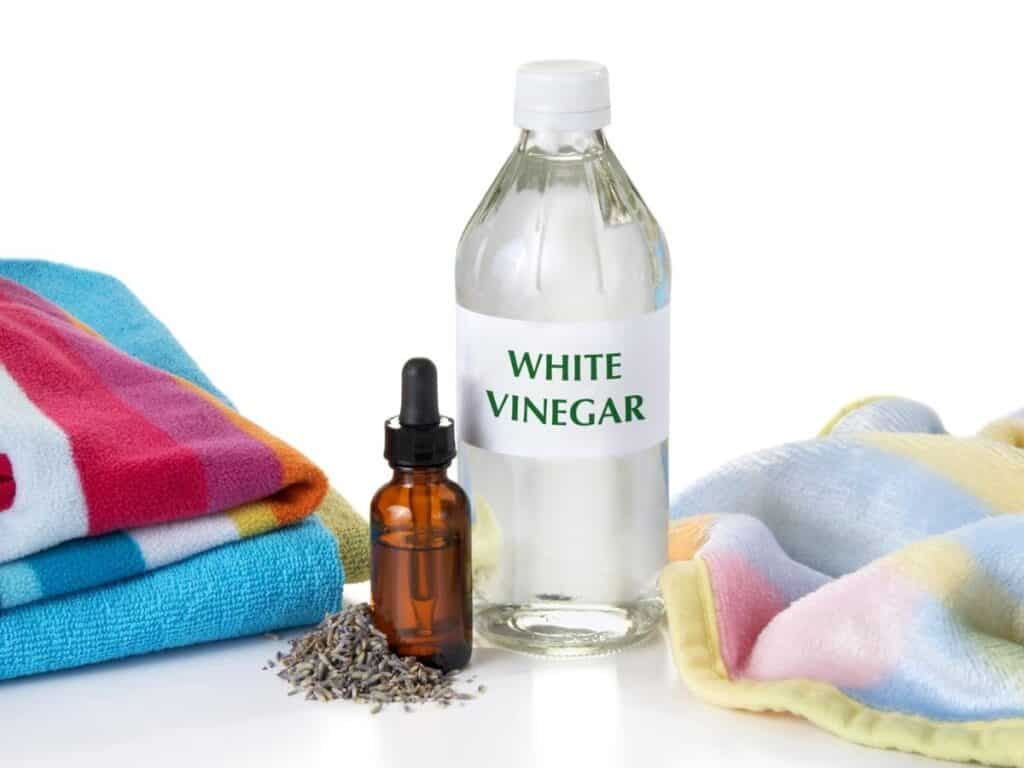
White vinegar is a renowned odor remover. To use it, make a solution of white vinegar to water at a ratio of 1:1. Next, put the solution into a hand sprayer and thinly spray all the corners of the garment, including the inside.
But keep in mind vinegar has bleaching properties. To use it safely on clothes, check the manufacturer’s washing instructions for its compatibility with your type of garment. Alternatively, you can test it on an inconspicuous part to avoid ruining the whole garment.
Airing the garment
This is one of the cost-free methods of removing odor from dirty clothes. All you have to do is place your clothes out in the sun and wait for nature to take over. Placing the garment under the sun kills the odor-causing bacteria. For better results, ensure to turn the clothing inside out during airing.
Baking Soda
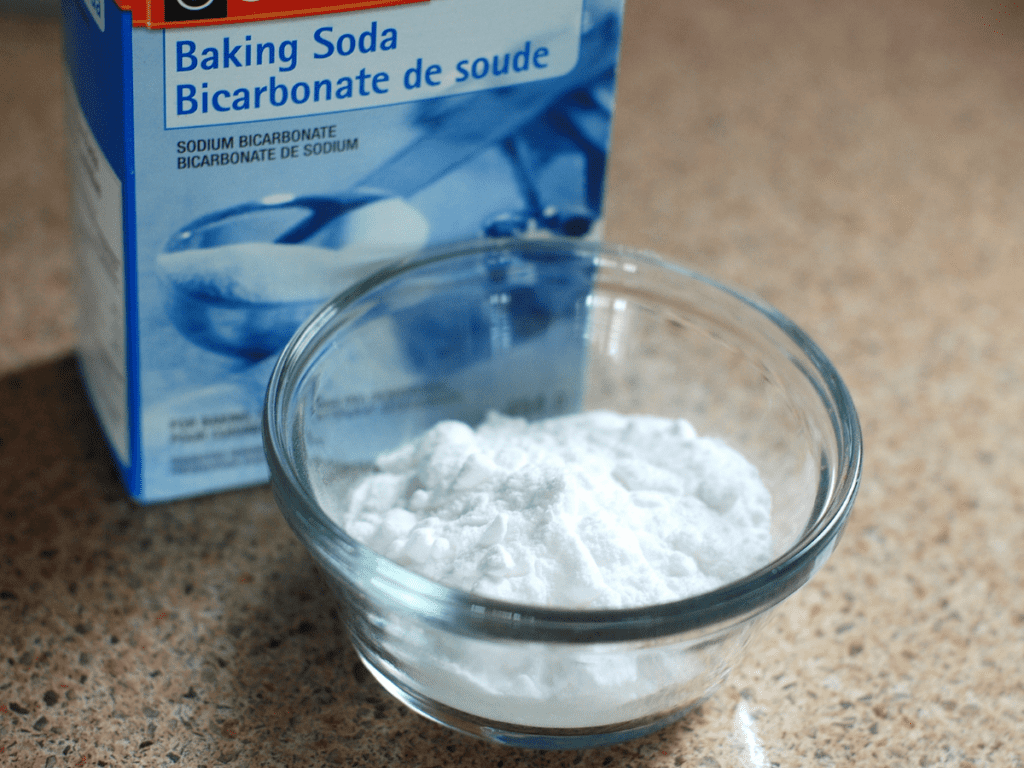
Baking soda is not a baking ingredient, but it can be used to clear bad odors as well. To use it, make a paste of baking soda and water and apply it to the smelly parts: crotch, and armpit, among other odor-producing parts. Afterward, air-dry the garment before thoroughly brushing off the baking soda with a toothbrush.
Vodka
Vodka is mainly known as a refreshment. But it can also be used to remove odor with excellent results. In its undiluted form, pour some vodka into a spray bottle, spray onto the smelling part of the dirty cloth and hang out to dry. After about 15 minutes, vodka neutralizes the bad odor leaving it smelling fresh.
I wrote a list of the best laundry detergents for farmers if you’re looking for some heavy-duty laundry detergents to clean your clothes.
Frequently Asked Questions
How Long Can Wet Clothes Be Left in a Basket?
According to the Whirlpool Institute of Fabric Science, wet clothes can be left for up to 12 hours without any cause for alarm. This is a short period with no chance of mildew or smell bacteria developing.
Can I Wear Dirty Clothes After a Shower?
Wearing dirty clothes after a shower is fine, for outer clothes. However, wearing underclothes is not recommended for several reasons. In most cases, you end up transferring the dirt and bacteria back to your clean skin.
Can Wearing Dirty Clothes Make You Sick?
Wearing dirty clothes can make you sick since clothes retain lots of infectious microbes from a sick person. But this also depends on other factors such as the type of clothes, the nature of the infection, and its seriousness. However, for most skin diseases, wearing an infected person’s clothes will inevitably lead to infections.

I’m an expert wardrobe organizer and a bit of a clean freak. I created this website and its YouTube channel to share practical guides about laundry and organizing. My teachings have been featured in multiple large news publications, and I’ve self-published two wardrobe organizing books and an entire course on the subject.
